5 septembre 2019
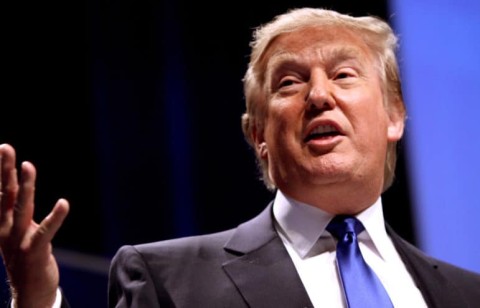
You can sign up to receive our newsletter here. Photo: Yet another study has found the Trump administration’s corporate tax cuts aren’t leading to increased business investment, as the US President had promised. Credit: Gage Skidmore / Creative Commons
By Erika Beauchesne
5 September 2019
Corporate tax cut fails to boost investment: IMF
Evidence that corporate tax cuts do not lead to increased investment keeps piling up. The latest analysis comes from the International Monetary Fund, which published a study last month confirming business investment has been rising due to increased demand and sales – not corporate tax cuts.
Rather, the IMF found reduced tax rates have boosted large companies’ market power, leading to increased corporate concentration across sectors from pharmaceuticals to airlines that has “muted” any effectiveness from tax cuts.
The latest study adds to recent substantial and non-partisan research on the ineffectiveness of the Trump administration’s corporate tax cuts. Despite initial promises of growth and job creation, the situation in the US worsens.
The billions in corporate tax cuts on business investment introduced last year by Finance Minister Bill Morneau to appease the business community have also failed to increase business investment. The latest Statistics Canada figures show that business investment in the second quarter of 2019 was down by about 4% from a year before, while corporate profits and surpluses continue to grow.
Meanwhile in Alberta, the economic outlook isn’t looking any rosier since Conservative Premier Jason Kenney slashed the corporate tax rate to 8 per cent this July. As C4TF previously pointed out, cutting rates for the most profitable companies in Alberta --many of which are foreign-owned—doesn’t help ordinary workers. It helps the rich get richer. The province is now looking at spending cuts in areas such as health and education. Despite federal and provincial corporate tax cuts, capital spending by oil and gas industry continues to decline, and in the latest quarter was 19% lower than a year before.
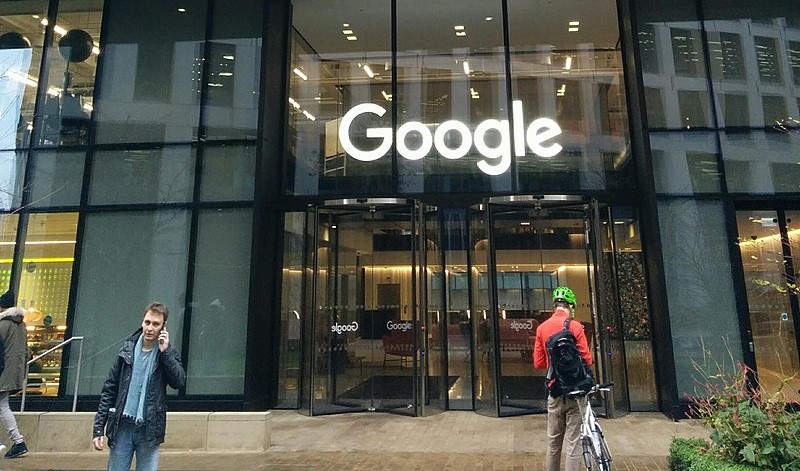
Google is among the profitable multinational corporations that face a tax on digital goods and services in France. Credit: Gciriani /Creative Commons
France makes concessions on digital tax
The US and France have reached a compromise on their digital tax feud. For months, the two countries were embroiled in a battle over France’s tax on foreign internet giants like US-based Google, Facebook and Amazon. The 3 per cent levy on digital goods and services came into effect this year and drew the ire of US President Trump, who threatened to retaliate with tariffs on the European nation.
At the G7 last month, France agreed to reimburse the US for any difference between its tax and the future standard decided on by the OECD, which is looking at ways to fix the global corporate tax system. A Bloomberg story last month highlighted how companies such as Uber have been able to use creative accounting strategies to lower their tax bills – a criticism levied at other online giants such as Amazon, as a Guardian article pointed out this week.
France has been a leader on the digital tax front while other countries such as New Zealand and Spain are also introducing taxes of their own. Canada continues to drag its feet – despite polls showing Canadians would support such a tax and the Auditor General’s findings earlier this month that the economy has not kept pace with digital advances.
A recent op-ed in the Financial Times weighed in on the business case for taxing online giants, pointing to the disadvantages Canadian companies face at home.
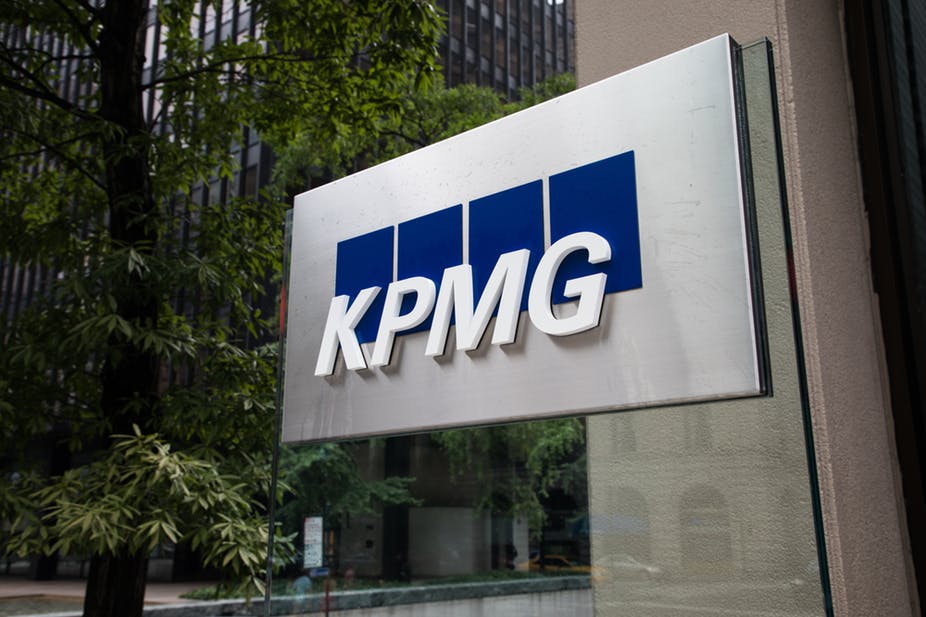
The billionaire Chan family claims KPMG was directly involved in the planning of the offshore scheme. Isabelle OHara/Shutterstock
BC billionaire family linked to KPMG scheme: CBC
Two prominent Canadian philanthropists have spent years wrestling tax authorities over the infamous KPMG Isle of Man scheme, according to a CBC investigation last week.
Caleb and Tom Chan, brothers and major charity donors in Vancouver, were among a handful of wealthy Canadians to use KPMG’s sophisticated offshore scheme. New court documents reveal the Chans and the accounting giant have been disputing over who was directly engaged in the offshore planning.
An earlier CBC investigation this year revealed the CRA had struck a deal with wealthy clients involved in the affair. Canadians for Tax Fairness has been a vocal critic of the lack of transparency surrounding the case.
The Chans have been challenging the CRA over access to KPMG documents, arguing client-solicitor privilege. Corporations and wealthy individuals with money to spend can significantly drain agency resources. A recent report from Business in Vancouver detailed CRA’s limited power in pursuing investigations into the Panama Papers due to expensive legal challenges waged by those named in the 2016 leaks.
These cases highlight the risks of opaque ownership and the need for additional resources to help CRA investigate and prosecute sophisticated tax avoidance schemes. They also remind us, as this excellent Guardian op-ed from 2018 points out, that “philanthropy is a dangerous substitution for progressive taxation”.
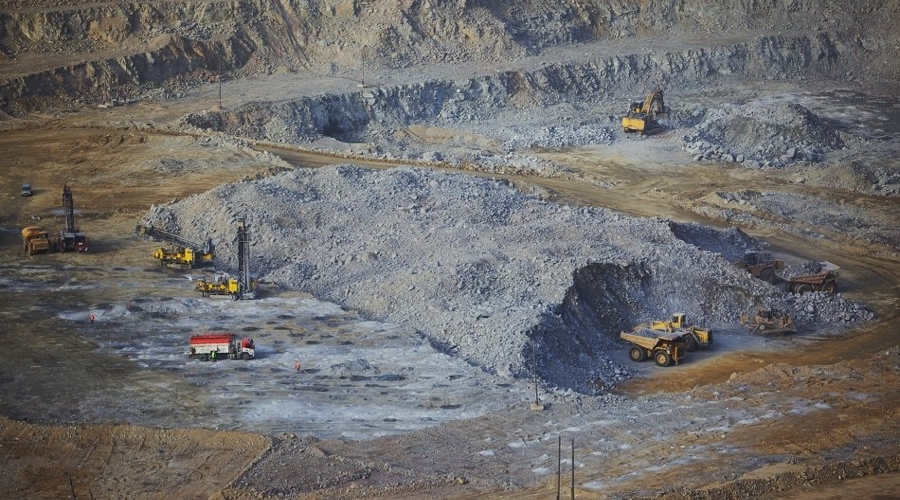
The mining sector in Australia has come under greater scrutiny in recent years VoxPopuli.kz | Creative Commons
Australian tax agency aims to settle score with industry:
It’s been a good month for the Australian Tax Office. The agency recently won a court battle allowing it to use information from the Paradise Papers in its tax assessment of multinational mining corporation, Glencore.
The 2017 Paradise Papers investigation by the International Consortium of Investigative Journalists (ICIJ) uncovered offshore holdings of major global companies, including Glencore, which has mining operations in Australia and throughout the world.
Glencore had challenged the ATO from using the leaked files, arguing they fell under legal privilege. But in a decision that could have implications for future cases, Australia’s top court ultimately ruled against the mining giant, noting the documents were in the public realm.
“[T]he days of being able to hide money overseas are rapidly coming to an end,” a senior agency official warned in a statement.
Glencore isn’t the only company to recently come under the microscope. The ATO is also pursuing $755 million in taxes from British-based multinational Shell for its stake in a major Australian gas project, the Guardian reported last month.
The paper points out these recent cases are part of Australia’s broader plan to recover taxes owed from large multinationals. Last year the ATO won another multi-million-dollar dispute with Chevron over its use of intercompany loans. Glencore and Chevron both have dozens of subsidiaries and related companies based in Canada. We hope the Canada Revenue Agency won’t shy away from going after these and other large corporations for the taxes they owe.

The 2015 Swiss Leaks uncovered billions in offshore accounts at the HSBC’s subsidiary bank in Switzerland. ICIJ illustration
Former banking exec pleads guilty to role in Swiss Leaks
The ICIJ’s investigative work recently resulted in another court victory for tax justice – this time in France. The former head of HSBC pled guilty to helping wealthy clients avoid $1.8 billion in taxes through the bank’s Swiss subsidiary. Details of the case first came to light after the 2015 Swiss Leaks investigation uncovered offshore investments from individuals and companies across the globe, including $3.9 billion from Canada. Last month the bank agreed to pay $329 million to Belgian tax authorities and previously committed millions to France to settle related cases.

The Fraser Institute compares Canadian taxes to 1961, before critical social programs like health care. Credit: Day Donaldson via Creative Commons
Fraser Institute study flops again
Another report from the Fraser Institute has been shot down by experts, including by Canadians for Tax Fairness -- and roasted by just about everyone else. The right-wing think-tank published a study last month claiming the average Canadian family has paid more in taxes than they do on necessities like food and housing.
As economists pointed out on social media, the study included corporate profit taxes and natural resource royalties in a family’s tax bill. It also used calculations from 1961 but ignored key social programs taxes have helped pay for since then, such as health care, the CPP and unemployment insurance.
Pundits took to multiple platforms to ridicule the report, from Charles Adler’s Tonight show to a cutting op-ed in iPolitics and even a spoof in the Beaverton that joked the study “adds in the GDP of Liechtenstein, Paraguay, and Madagascar, then multiplies that by 67 before dividing the result by the number of angels who can dance on the head of a pin.”
Despite the Institute’s alarmist report, a greater share of Canadians believes the taxes they pay today are fair compared to 2011, according to a recent poll from the Canada Revenue Agency. But what Canadians saw as less fair were the amounts corporations and the very rich contribute -- only 28 percent said the very rich pay their share and even less, 27 percent, said corporations are paying the appropriate amounts.
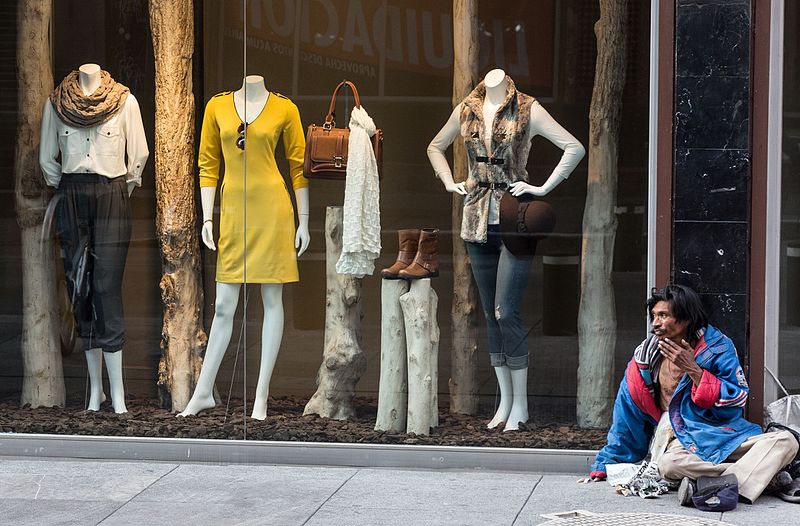
The wealth gap isn’t confined to the US. Inequality has become a global concern. Tomascastelazo, Creative Commons
Recommended reads: Stark income inequality reignites movement to tax the rich
In the six or so minutes it takes you to read this newsletter, the richest family in the world—the family behind Walmart—will have made an extra $420,000, according to calculations in a recent Bloomberg story that looks at the biggest family dynasties in the US and how the gap between the obscenely rich and those struggling to get by has widened in recent decades. It points out the situation isn’t confined to the US -- from Hong Kong to Paris, inequality has grown into a global concern.
With a federal election in the wings, there’s no better time for Canada to confront its share of the problem. There have been some smart discussions lately about where to start. In a recent episode of the Gamechangers podcast, C4TF director Toby Sanger talked about how fixing the tax system can curb inequality and strengthen the economy. Last week in the Toronto Star, author and activist Linda McQuaig explored the need for bolder solutions from federal parties, including a wealth tax, and the BC chapter of the Canadian Centre for Policy Alternatives recently published an impressive stock of progressive policy options that deserve our attention this election.